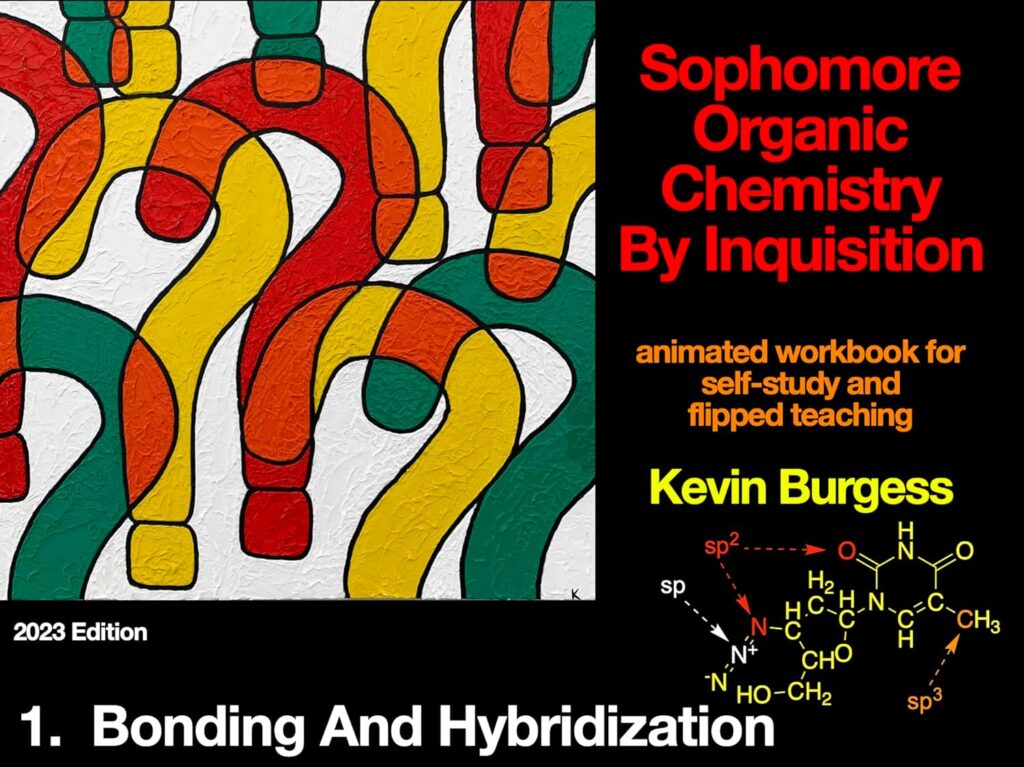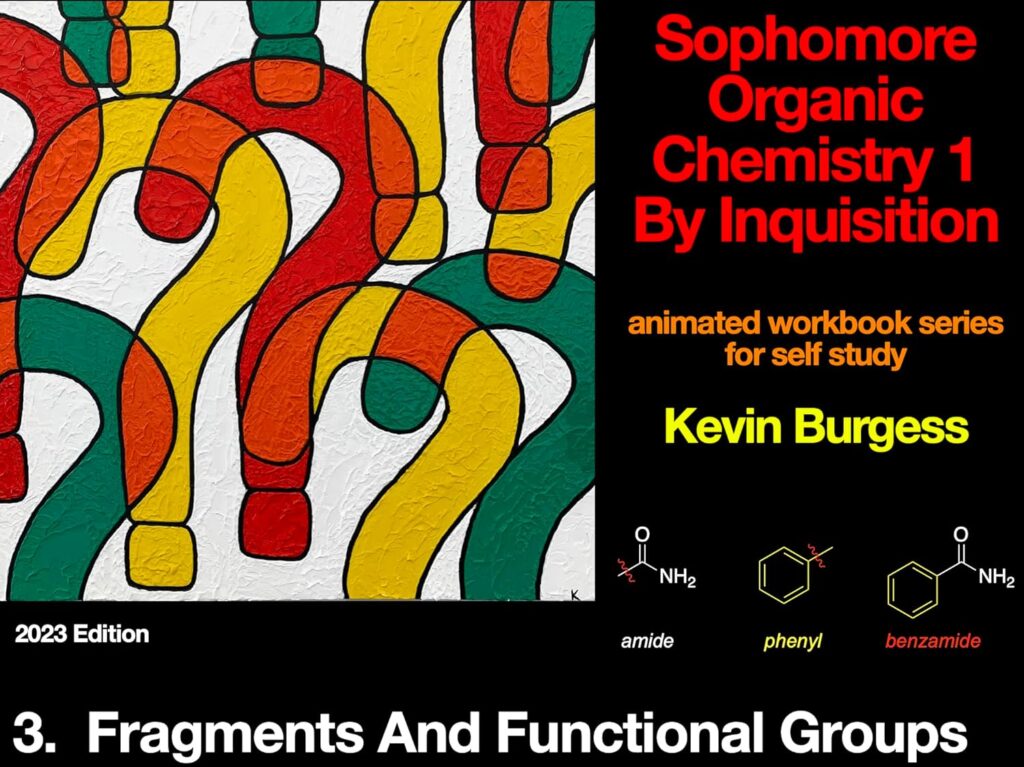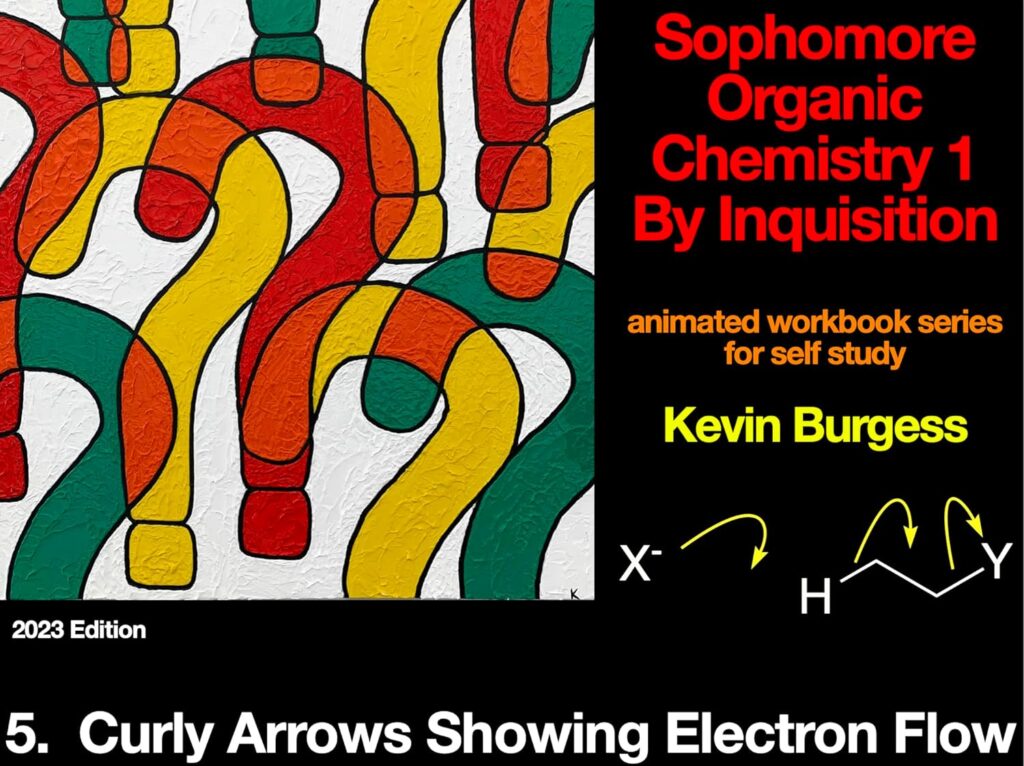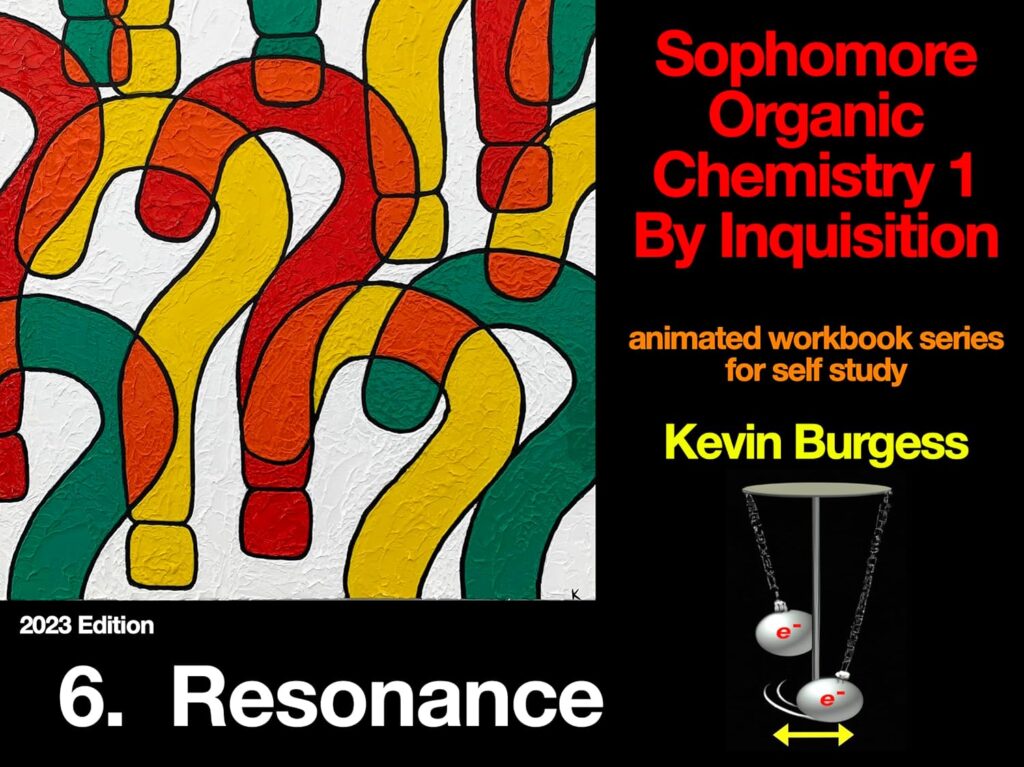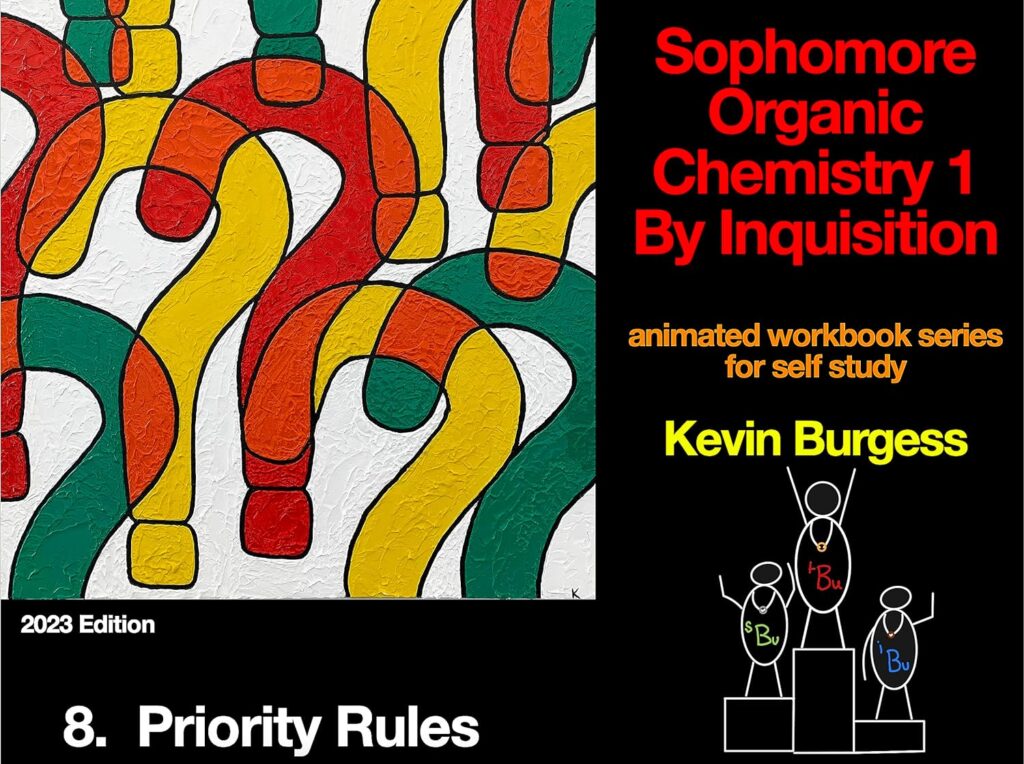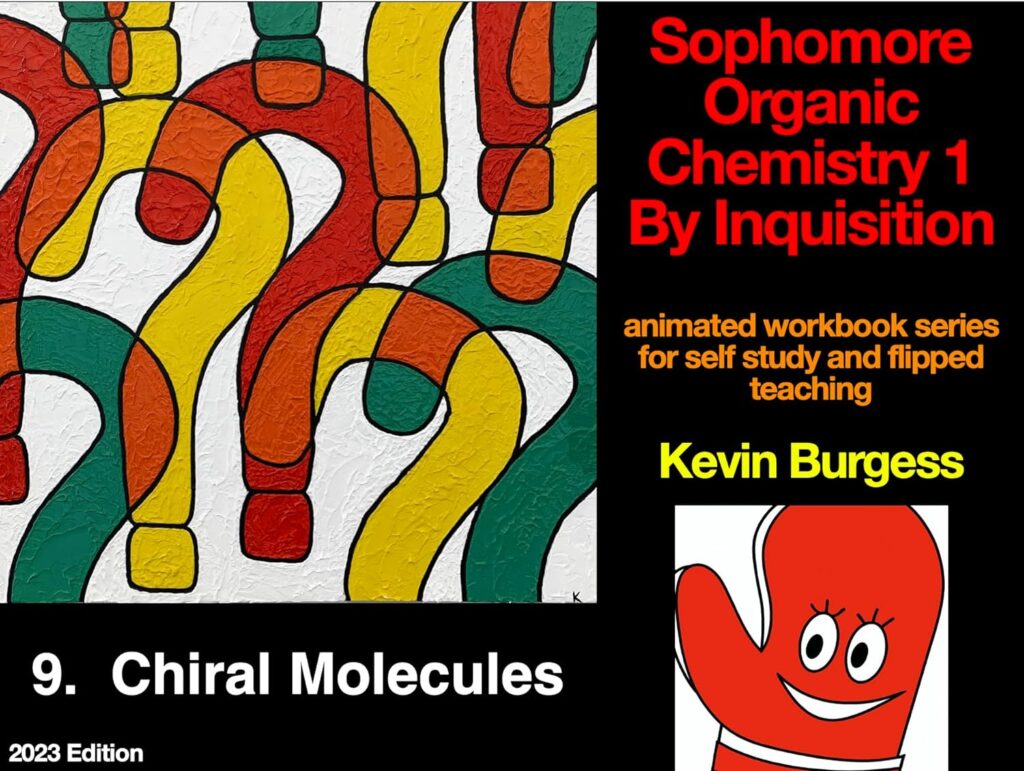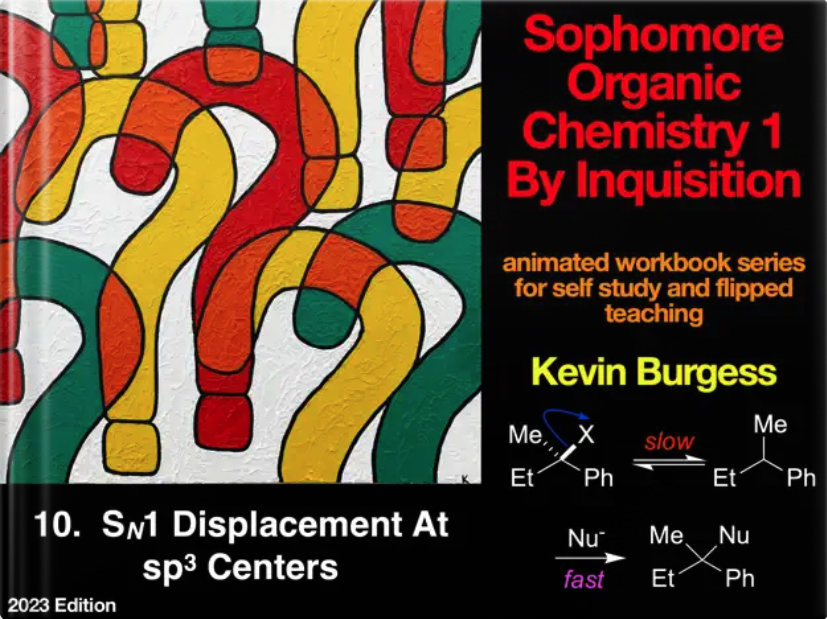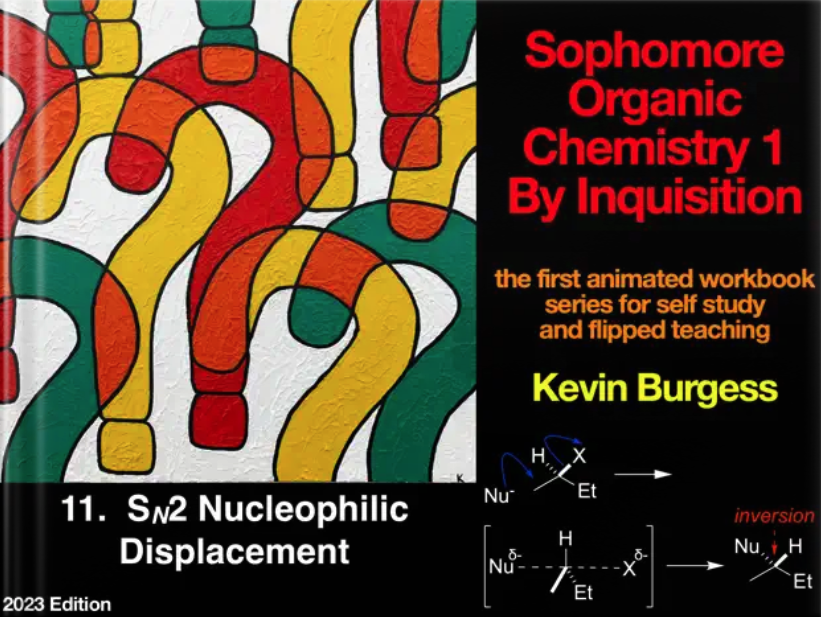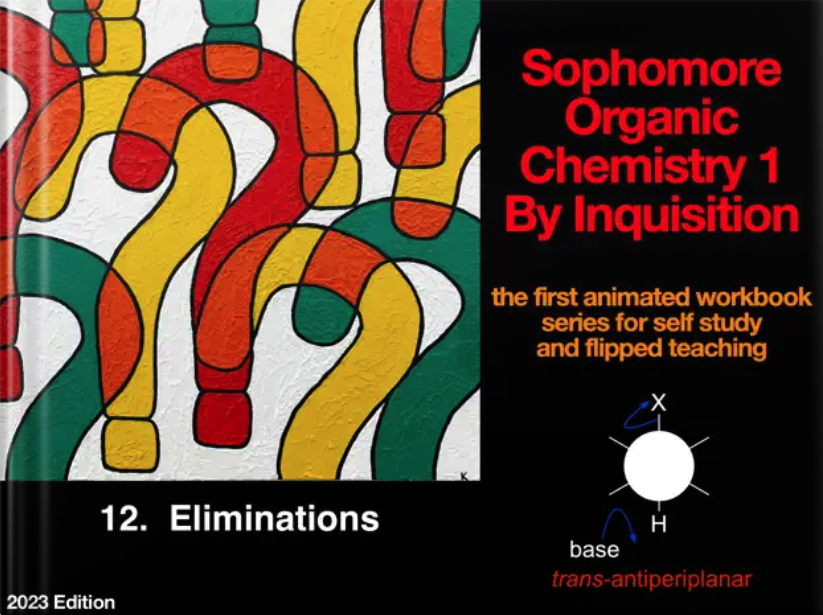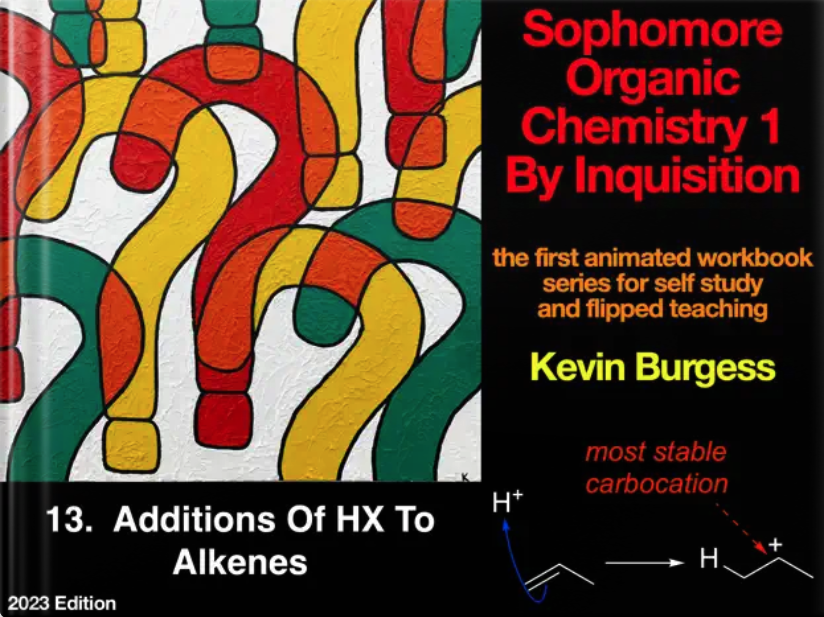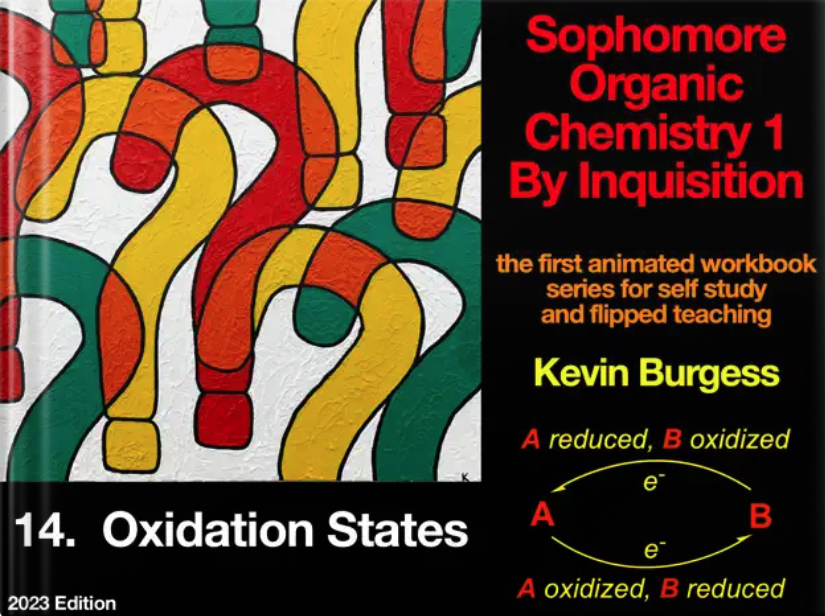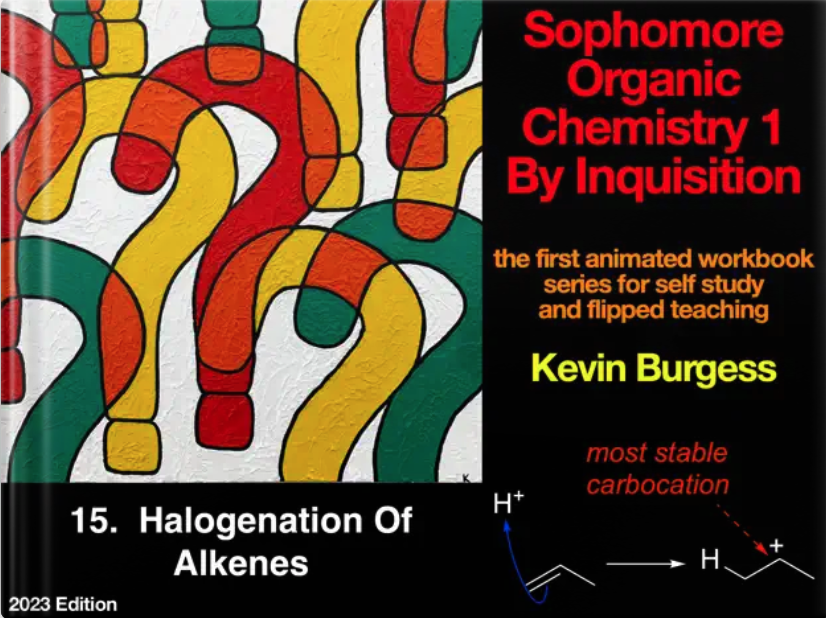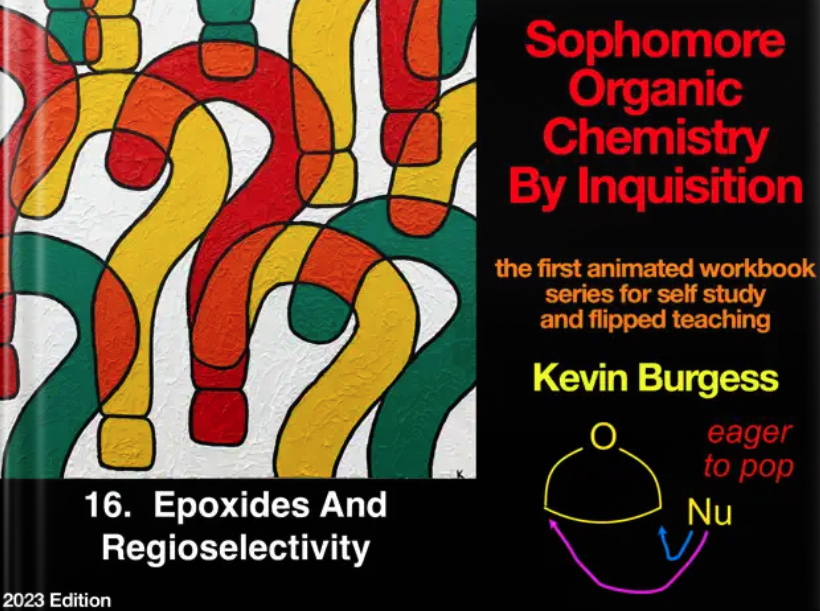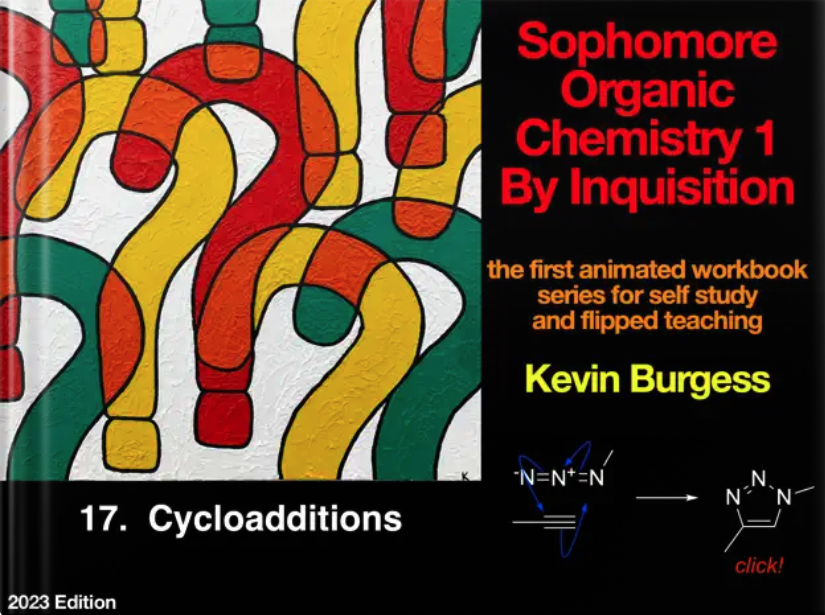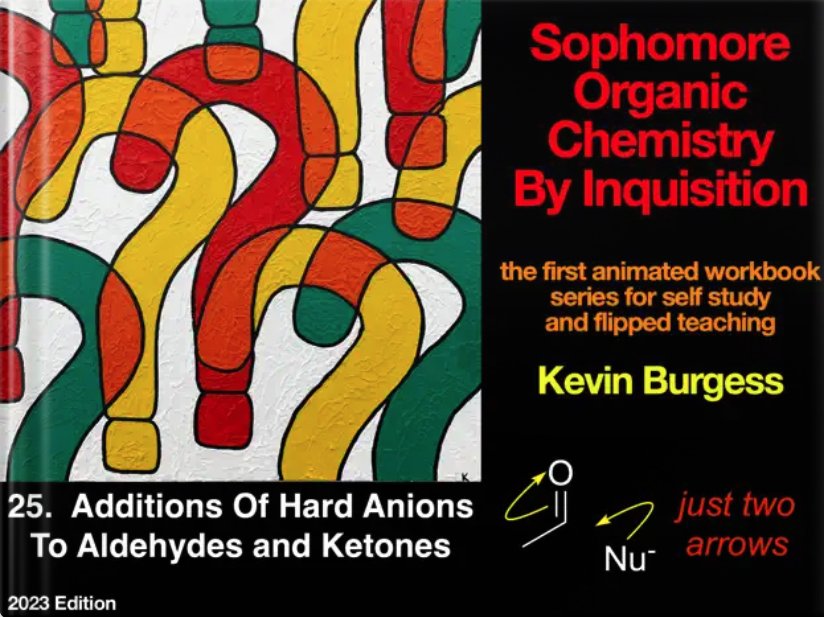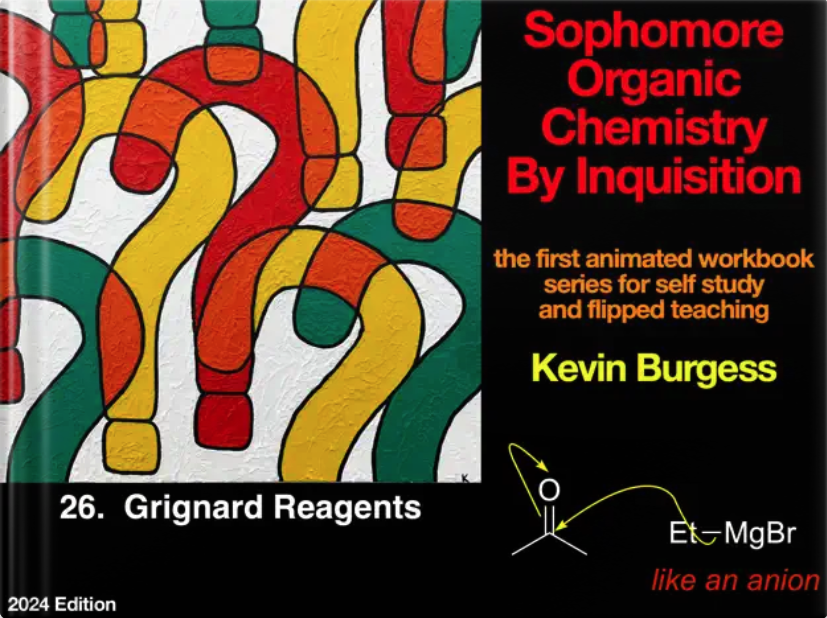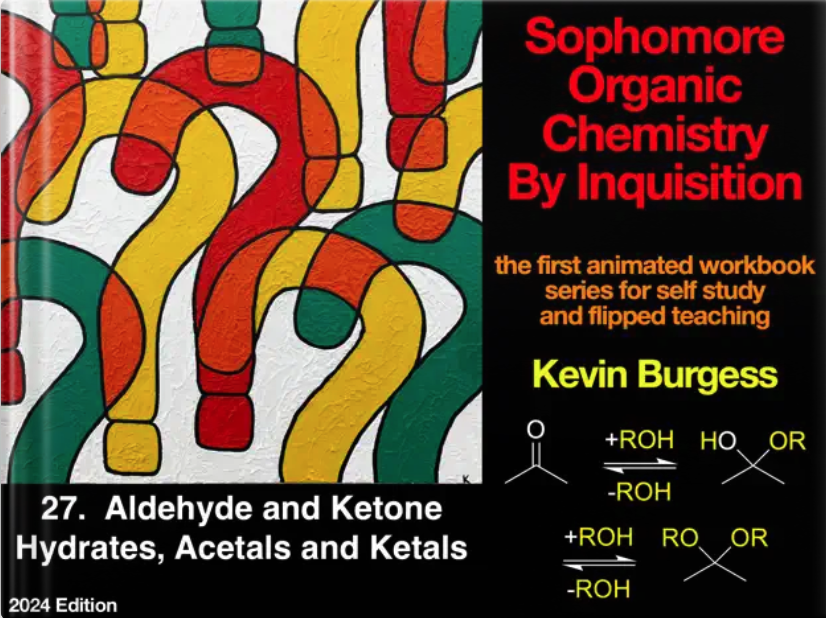Series Description
A. For Students
Introductory organic chemistry involves facts, concepts, and applications in varied, and unfamiliar, situations. Students who only read lecture notes and the textbook tend not to do well. Psychology reveals why. The brain falls into the illusion of fluency: images seem so familiar after several encounters that students believe they know it. In theory they do, in practice, they don’t.
These workbooks feature only questions because that is what students need most to learn. Questions are structured so the answer to one leads to the next; that way students understand how pieces of the organic chemistry jigsaw puzzle fit. Answers are online at byinquisition.org. Students learn concepts more via this structured approach than when presented with randomized problems.
These structured workbooks allow students to practice using facts and concepts they have learned or are learning. It employs proven psychological techniques like active recall (forcing the brain to think without reminding it), and spaced learning (to ensure knowledge is not forgotten when the short-term memory is flushed when the brain cleans up in sleep). Videos are embedded to help.
Students should answer in a dedicated notebook or folder, then, only when they have finished, check against answers online. Incorrect answers should be noted. The next day or after (but not before sleep and brain clean-up) it is best to attempt questions answered incorrectly the first time. Αfter, repeat this process at increasing intervals.
Hot tip. The first ten eBooks cover the most important material in all Intro ORG CHEM. Mastery of those pays dividends because it arises repeatedly in the rest of the course. Lack of mastery leads to double- trouble: trying to understand the foundational knowledge, and a new concept or application at once.
B. For Professors
I used chalk or overhead scrolls when I first started teaching. It was boring, and students could sense I was increasingly fed up with copying their notes as the course progressed. That style of teaching seems ridiculous now. Making notes is relatively passive, students get bored, and the material they take down is often flawed and always worse than the highly polished textbooks.
These days I only lecture in a semi-flipped format: encouraging students to read the textbook beforehand (most do not) and describing concepts and facts colloquially in lectures. I do not want students to take detailed notes, and tell them so: all the material is in the textbook. Instead, they have hard copies of the Sophomore Organic Chemistry By Inquisition 1 or 2 first editions. I start a dialog and ask for volunteers to comment (sometimes fruitless if no one wants to volunteer answers in front of about 100 people). I often pick on students by name or some feature of their clothing and solve the problem together.
I started teaching this way before flipping classes became popular. My approach is not flipped: there are no groups and I present some material. I do not like flipped classes because they are too chaotic, some students do not learn well in those environments, and it tends to be slow and hard to cover the syllabus. I think students in flipped classes may learn more but less. The strategy I call semi-flipping. I
expected students to learn better, and enjoy more, relative to conventional or flipped lectures, and they seem to. I was pleasantly surprised to find teaching semi-flipped classes much more enjoyable.
In class, one chapter in my book is a 75-minute lecture. We only solve 20 – 40% of the problems in class. If I do not get to the end of the chapter solving the rest is homework. That way I always keep to schedule and cover the syllabus. Students know the content of the quiz in the next class and the exams are similar to my workbooks.
This eBook series I am publishing chapter-by-chapter as electronic books (iBooks and Kindle). I may ultimately publish hard copies of the complete work, sophomore organic 1 and 2 combined. It is ideal for students to have hard copies of semi-flipped lectures.
If you are interested in a PDF please let me know (professors will know how to find my contact info). Alternatively, please use the hard copies of Sophomore Organic Chemistry By Inquisition 1 and 2 first editions, and make the students aware of the eBooks with embedded videos. I am delighted to send hard copies of these workbooks to professors who request them.
My first structured workbook was for a first-year graduate class on organic reactions and is available as a hard copy for $35 and I plan to publish an electronic version with embedded videos soon. The electronic version will be available first on the virtual bookshelf offered by VitalSource.
